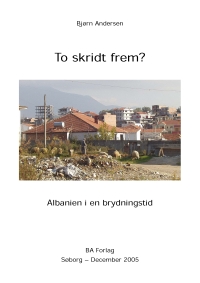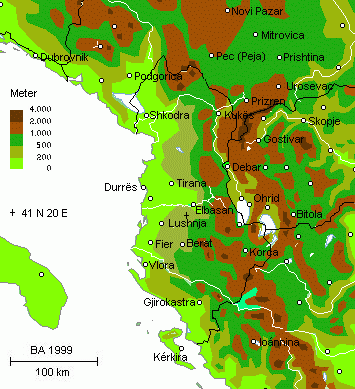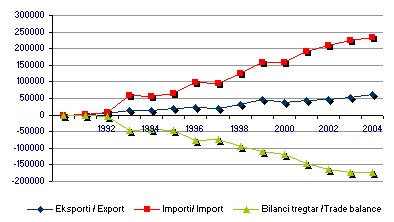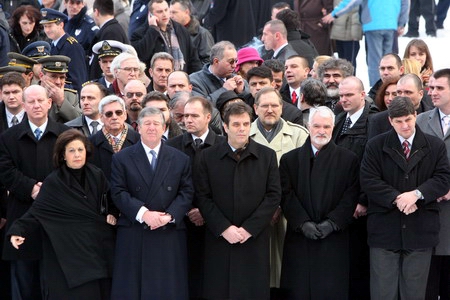Sidste Nyt fra Albanien, Kosóva og Makedonien
The Latest News from Albania, Kosóva and Macedonia
# 291 - 8' årgang - 17.02.2006
Version 1.0 •
PDF for printing •
Info om »Sidste Nyt«
Udgiver:
Bjørn Andersen
Publisher:
Bjoern Andersen

Adriatic Charter members/NATO aspirants Albania, Macedonia and Croatia sent representatives to meet with Secretary Rice and other officials to discuss regional security issues and collaboration of efforts (Photo from US Embassy, Tirana)
![]()

















 Veton Surroi
Veton Surroi